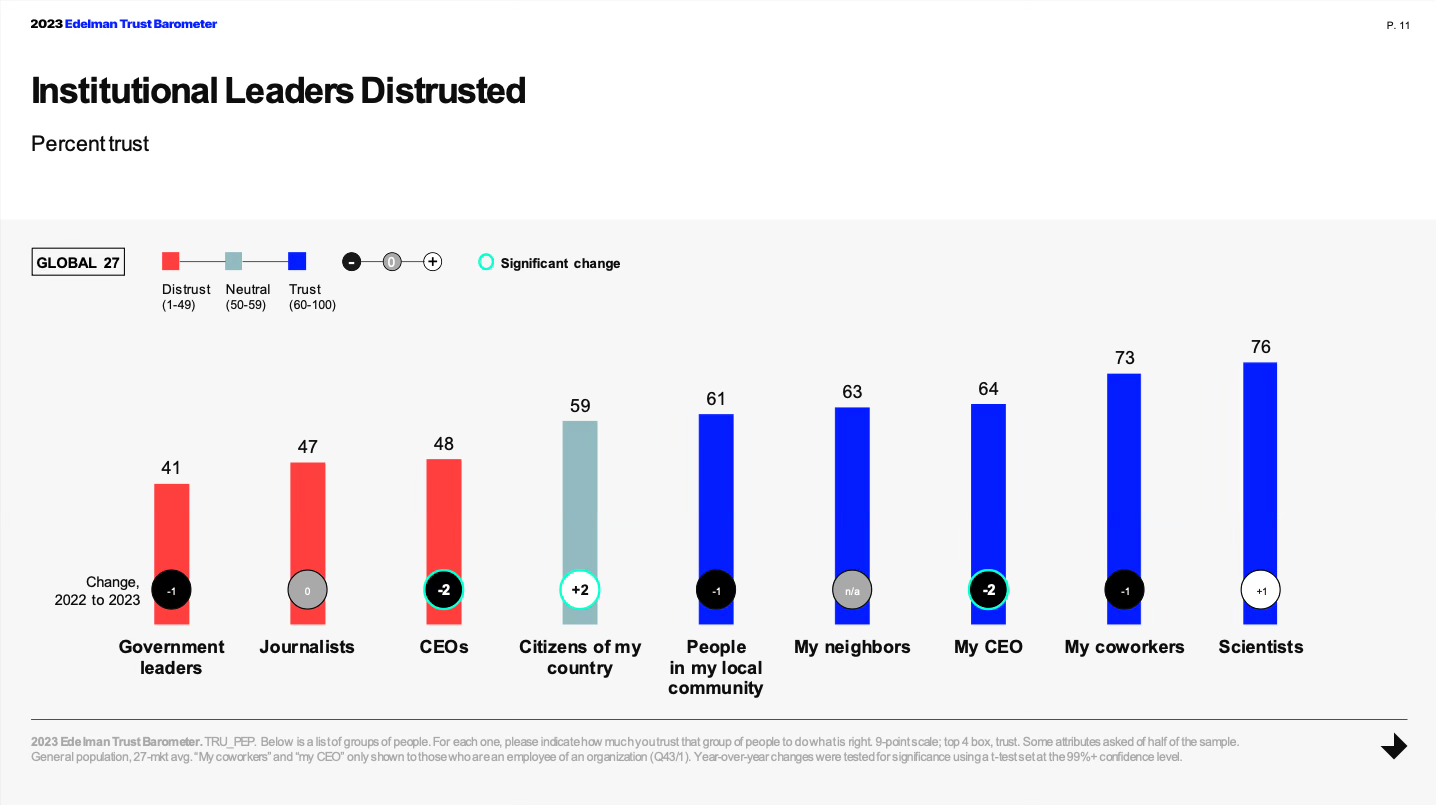From Authenticity to Relatability: The New Trust Equation on Social Media
In our algorithm-driven world, social fluency and being a digital doppelgänger might carry more weight than real-world achievement.
When I started working on social media creator programs 10 years ago, we used to boast that the athletes and artists we worked with had an audience precisely because they were world-class at something besides Instagram.
Audiences trusted these individuals because they were the world’s most accomplished climbers, skiers, athletes and photographers, and they guarded their reputations closely.
Being world-class in the real world was shorthand for “authenticity,” which meant trustworthiness, and it always resonated.
But something in Sprout Social’s 2024 Creator Marketing Report made me wonder if our definition of what makes someone trustworthy is about to get scrambled. Here’s the thread of logic in the report:
67% of consumers want honest and unbiased information. (Obvious.)
53% follow creators who “align with my personal values.” (Not a surprise…)
Nearly half just want to be entertained (Interesting pivot.)
But the real surprise is this: While 47% of people overall want “authenticity even when posting sponsored content,” only 35% of Gen Z claims to care about authenticity.
If this isn’t just a matter of redefining “authenticity,” then we’re looking at a new trust calculus, one based on a very different set of assumptions.
For Gen Z, trust isn’t built on 'authenticity'—it’s all about social savvy.
The first step in the seismic shake-up of trust started years ago, when trust began to shift from media and institutions toward individual creators.
Edelman’s annual “Trust Barometer” has long shown that traditional, institutional players have lost their spots atop the trust hierarchy, while “People in my community,” “Coworkers” and “Neighbors” — basically different flavors of the same stew — are winning.
In this global survey, scientists are somehow defying gravity, a post-Covid plot twist that probably looks different in the US.
In the 2024 Edelman Trust Barometer, both scientists and 'people like me' were trusted by 74% of respondents about new tech.
After 4-plus years of arguing about vaccines, is it any surprise that many find their neighbor's hot take as trustworthy as a PhD's?
Still, people must use some formula to decide which individuals are trustworthy.
For my GenX peers, “selling out” was the ultimate shame, and it was nearly axiomatic that you couldn’t trust someone who was taking money from a brand.
What Gen Z sees as trustworthy may not be the same as what I consider authentic.
That skepticism largely carried over to social media, creating a tie between trustworthiness and ideas of “authenticity” that were some combination of real-world excellence and an absence of commercial interest.
Trustworthy social voices needed one of the two — Sponsored athletes had excellence, and “objective” reporters floated above the fray of payment.
Years of Hype Houses and YouTube gamers may have severed that tie. The Sprout report quotes the Head of Social and Influencer at Accenture Song as saying, “Authenticity is overrated. We follow influencers not because we believe in their authenticity but because they entertain or interest us. It's a mutually beneficial relationship—influencers make a living from brand endorsements, and followers know this commercial aspect. This transparency is key to understanding the dynamics of influencer marketing, and it’s clear consumers are aware of this too.”
Today’s youth aren't naive—they know that money powers the internet. What they see as trustworthy may not be the same as what I consider authentic. While we agonize over #sponsored disclosures, social-natives understand the economics of the internet.
What if the ability to craft a viral TikTok is more valuable than climbing hard? That’s a whole new generation of creators.
Their signifiers are relatability, audience size, and the ability to seem “like me” with the right language, style, and cultural references. Not a wall between the editorial church and the ad sales state.
The million-dollar question: Who's poised to win in this trust landscape?
In the outdoor industry, the ultimate barometer of trust was typically athletic achievement. But what if the ability to craft a viral TikTok is more valuable than climbing hard? That’s a whole new generation of creators.
Personally, I still feel a deeper trust with creators who are athletes, photographers, or adventurers that excel outside of social media, but maybe it’s just generational.
TLDR:
Trust has shifted from institutions and expertise to “people like me.”
For Gen Z, trust isn’t built on “authenticity”—it’s all about social savvy.
With social fluency at the forefront, a new wave of creators is poised to dominate.
The rules for building trust are changing—quickly.




Lots of interesting thoughts to unpack here. I think what you're describing aligns with the shift to the middle in the outdoor industry, with investment going much more to street fashion compared to specialty retail like it used to. There's a generation of consumers driving these trends that operate with completely different needs and values to what we (definitely still cool and relevant!) Gen Xers/elder millennials have. I think we fail to understand them at our peril.